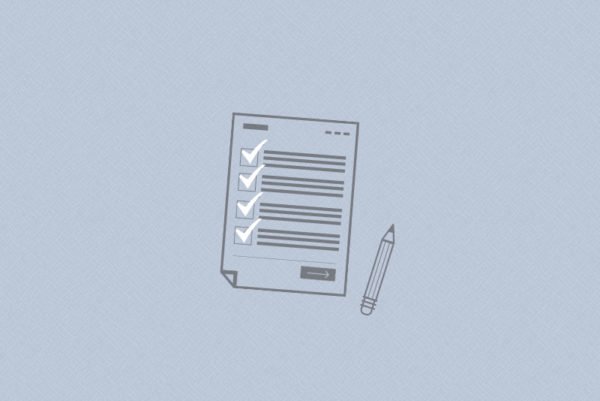
7 Tips To Ace Your Remote Job Interview

Between saying goodbye to commutes, escaping the distractions of an open office, and making every day Casual Friday, remote work certainly has its perks. We’ve made clear over and over just how awesome remote life is, but what do you need to land that work from wherever job?
Finding ways to stand out in a sea of faceless resumes is key for anyone on the job hunt—but interviewing for a remote job isn’t the same thing as one that comes with an office.
Here are seven things you can do to set yourself apart in the remote job search and convince future employers that you’re ready for the freedom of distributed work.
1. Learn the tools of the trade.
Companies expect remote employees to be comfortable collaborating and communicating digitally. After all, opportunities to meet in person are few and far between for distributed teams.
If a recruiter asks you your preferred method of communication and you say “…email?” you’ll move to the bottom of the pile. Learning and being well versed in popular tools used by remote companies is critical to getting a leg up on the competition. These include Slack, Skype, Basecamp, Zoom.us, Trello, Google Docs, Dropbox, Meeting Planner app, and Google Hangouts. Most of these apps are free or have some free component, so you can play around with them and get the hang of them. You can even try asking friends to meet with you on Zoom or Google Hangouts to get in some practice.
You’ll earn bonus points in the application process if you can demonstrate how confident you are with these tools in the application itself. For example, submit your cover letter as a Google Doc or Trello board, and offer your availability for a Skype, Zoom, or Hangouts chat in an initial email.
2. Try working from home.
Remote work experience is always a nice-to-have when applying for remote jobs, as it shows employers that you’re accountable and productive without management sitting beside you. More importantly, it will also give you an idea of whether you enjoy working remote or not.
Have a flexible job right now? Try working from home now and then. If that’s not possible, take on some freelance jobs that give you a taste of remote work. Even pointing to experiences like a storm forcing you to work from home can set you apart. It’s as easy as saying, “My current job is based in an office, but during last year’s snowstorm I worked from home for several days. Despite the change, I pushed two updates and met with my team via Skype each morning.”
3. Start a side project.
Companies hiring for remote positions are always looking for self starters who can take on tasks without supervision and in-depth direction. Side projects are an excellent way to tick this box as they demonstrate accountability and creativity.
These don’t need to be huge projects or undertakings. Simple things like contributing to an open source project, helping redesign a website for a local charity, or building a prototype that showcases a relevant skill all fall under this category. It’s even better if you can add these personal projects to GitHub to show employers that your projects are well organized and your code is clean.
4. Improve your writing.
Remote work relies on constant nonverbal communication with coworkers and external clients. That’s why most companies look for strong writers when filling remote positions.
Of course, no one expects you to be a master of prose, especially if you’re in a technical role. But being able to communicate effectively and eloquently is an absolute must.
There are lots of ways to improve writing over time. For immediate fixes, Grammarly helps eliminate grammatical errors, while Hemingway flags unneeded words to keep things direct and easy to understand. Everybody Writes by Ann Handley is also a solid resource filled with tips to level up writing.
But keep in mind that writing skills are like muscles: the more you exercise, the stronger you get. Over the long term, tools like 750 Words get you in the habit of writing for an hour every day. Copyblogger also has monthly writing challenges to push you out of your comfort zone.
5. Learn about project management.
Planning and organizational skills are must-haves for remote workers. After all, it’s easy to let things slip when you don’t have constant interactions with coworkers and managers.
Project management is corporate speak for a set of frameworks that help managers plan and launch projects on time and on budget. Learning the basics of the more common project management methodologies will prepare you for whatever system the company uses.
The Agile Method focuses on rapid delivery by splitting project goals into short time periods called sprints. The waterfall model focuses on a logical progression of steps needed to complete the project, while Kanban uses cards (physical or virtual) to help visualize ongoing project goals. Being able to speak to these in an interview will give the company instant confidence in your ability to plan projects and get things across the finish line.
Set yourself apart from other candidates by using one of the methodologies to manage a personal project or a task at your current job. Convincing a manager to implement a new system can be tough. Reflect on the launch and planning of past projects and approach your manager with this sample script:
“I’ve noticed that some projects (didn’t meet deadlines/had changing scopes/weren’t well understood from the beginning). How do you feel about using the Agile Method for our next project? I’ve been reading a lot about it and am interested in helping launch and plan it.”
6. Get your references in order.
Working remotely requires a huge amount of trust on behalf of the company and the employee. Unlike traditional offices, managers won’t know if you disappear for an afternoon or slack off in meetings.
Unfortunately, telling someone that you’re trustworthy usually has the opposite effect. That’s where references come in. Give an interviewer proof of others’ trust in you by providing reference contact information on your resume or including recommendations on LinkedIn and your personal website.
Make sure you call your references so they’re ready once the employer reaches out—and don’t be afraid to coach them. Share information about the new role and remind them about your accomplishments from when you worked together. Gently ask them to share anecdotes that prove you have the right skills to work remotely such as flexibility, creativity, and responsibility. This might sound something like this:
“I’m interviewing for a new position that will see me (explain the job’s key duties). The role is part of a remote team, so I think they’ll want to see proof of my (creativity/productivity/etc.). In case you can’t think of examples, I think that time I completed the website two weeks ahead of schedule while balancing input from different parts of the company reflects those needs well.”
7. Take on a hobby.
Remote work can burn out employees faster than traditional office jobs. Since there’s no set hours, people often feel the need to work around the clock.
Companies with many remote employees often recognize this issue and bring up the importance of work/life balance during interviews. Don’t be shy to talk about a sports team you play on, activities you like to do with your family, or anything else that’s important to you outside of work. These anecdotes give you personality and show that you use downtime to recharge.
This post was written in partnership with Authentic Jobs, where you can find job opportunities in the digital space. Head over to browse their listings and land your ideal remote job.













































